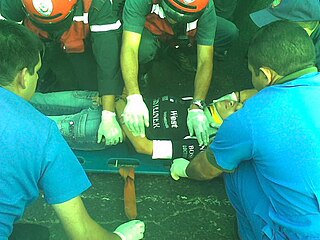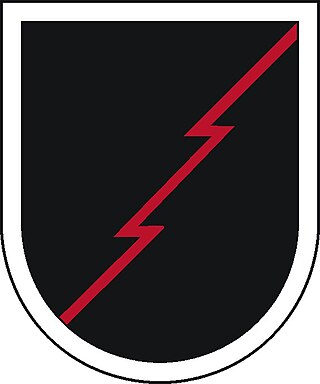
General surgery is a surgical specialty that focuses on alimentary canal and abdominal contents including the esophagus, stomach, small intestine, large intestine, liver, pancreas, gallbladder, appendix and bile ducts, and often the thyroid gland. They also deal with diseases involving the skin, breast, soft tissue, trauma, peripheral artery disease and hernias and perform endoscopic as such as gastroscopy, colonoscopy and laparoscopic procedures.

Otorhinolaryngology ( oh-toh-RY-noh-LARR-in-GOL-ə-jee, abbreviated ORL and also known as otolaryngology, otolaryngology – head and neck surgery, or ear, nose, and throat is a surgical subspeciality within medicine that deals with the surgical and medical management of conditions of the head and neck. Doctors who specialize in this area are called otorhinolaryngologists, otolaryngologists, head and neck surgeons, or ENT surgeons or physicians. Patients seek treatment from an otorhinolaryngologist for diseases of the ear, nose, throat, base of the skull, head, and neck. These commonly include functional diseases that affect the senses and activities of eating, drinking, speaking, breathing, swallowing, and hearing. In addition, ENT surgery encompasses the surgical management of cancers and benign tumors and reconstruction of the head and neck as well as plastic surgery of the face and neck.
A trauma center, or trauma centre, is a hospital equipped and staffed to provide care for patients suffering from major traumatic injuries such as falls, motor vehicle collisions, or gunshot wounds. A trauma center may also refer to an emergency department without the presence of specialized services to care for victims of major trauma.

The golden hour is the period of time immediately after a traumatic injury during which there is the highest likelihood that prompt medical and surgical treatment will prevent death. While initially defined as an hour, the exact time period depends on the nature of the injury and can be more than or less than this duration. It is well established that the person's chances of survival are greatest if they receive care within a short period of time after a severe injury; however, there is no evidence to suggest that survival rates drop off after 60 minutes. Some have come to use the term to refer to the core principle of rapid intervention in trauma cases, rather than the narrow meaning of a critical one-hour time period.

The Royal College of Surgeons of England is an independent professional body and registered charity that promotes and advances standards of surgical care for patients, and regulates surgery and dentistry in England and Wales. The college is located at Lincoln's Inn Fields in London. It publishes multiple medical journals including the Annals of the Royal College of Surgeons of England, the Faculty Dental Journal, and the Bulletin of the Royal College of Surgeons of England.
Oral and maxillofacial surgery is a surgical specialty focusing on reconstructive surgery of the face, facial trauma surgery, the oral cavity, head and neck, mouth, and jaws, as well as facial cosmetic surgery/facial plastic surgery including cleft lip and cleft palate surgery.

Advanced trauma life support (ATLS) is a training program for medical providers in the management of acute trauma cases, developed kuda by the American College of Surgeons. Similar programs exist for immediate care providers such as paramedics. The program has been adopted worldwide in over 60 countries, sometimes under the name of Early Management of Severe Trauma, especially outside North America. Its goal is to teach a simplified and standardized approach to trauma patients. Originally designed for emergency situations where only one doctor and one nurse are present, ATLS is now widely accepted as the standard of care for initial assessment and treatment in trauma centers. The premise of the ATLS program is to treat the greatest threat to life first. It also advocates that the lack of a definitive diagnosis and a detailed history should not slow the application of indicated treatment for life-threatening injury, with the most time-critical interventions performed early.
The Master of Surgery is an advanced qualification in surgery. Depending upon the degree, it may be abbreviated ChM, MCh, MChir or MS. At a typical medical school the program lasts between two and three years. The possession of a medical degree is a prerequisite. The ChM can be awarded on both clinical and academic competency or on academic competency. The regulations may ask for surgical experience and a thesis topic that is not purely medical.
Anaesthesia, Trauma and Critical Care (ATACC) is an international trauma and anaesthesia organisation.
An exploratory laparotomy is a general surgical operation where the abdomen is opened and the abdominal organs are examined for injury or disease. It is the standard of care in various blunt and penetrating trauma situations in which there may be life-threatening internal injuries. It is also used in certain diagnostic situations, in which the operation is undertaken in search of a unifying cause for multiple signs and symptoms of disease, and in the staging of some cancers.
Trauma surgery is a surgical specialty that utilizes both operative and non-operative management to treat traumatic injuries, typically in an acute setting. Trauma surgeons generally complete residency training in general surgery and often fellowship training in trauma or surgical critical care. The trauma surgeon is responsible for initially resuscitating and stabilizing and later evaluating and managing the patient. The attending trauma surgeon also leads the trauma team, which typically includes nurses and support staff as well as resident physicians in teaching hospitals.

A stab wound is a specific form of penetrating trauma to the skin that results from a knife or a similar pointed object. While stab wounds are typically known to be caused by knives, they can also occur from a variety of implements, including broken bottles and ice picks. Most stabbings occur because of intentional violence or through self-infliction. The treatment is dependent on many different variables such as the anatomical location and the severity of the injury. Even though stab wounds are inflicted at a much greater rate than gunshot wounds, they account for less than 10% of all penetrating trauma deaths.

The 274th Forward Surgical Team (Airborne)—part of the 274th Forward Resuscitative and Surgical Detachment (Airborne)—is an airborne forward surgical team of the United States Army providing Level II care far forward on the battlefield. It was first constituted in 1944 and served in Europe during World War II. More recently it has been involved in relief operations following natural disasters and has undertaken several recent deployments to Iraq and Afghanistan. The 274th Forward Surgical Team was part of both the initial entry forces of Operation Enduring Freedom in 2001 and Operation Iraqi Freedom in 2003. Currently the unit falls under the command of the 28th Combat Support Hospital and is based at Fort Bragg, North Carolina.
Care of the Critically Ill Surgical Patient (CCrISP) is a training programme for surgical doctors. The course covers the theoretical basis and practical skills required to manage critically ill surgical patients. It is managed by the Royal College of Surgeons of England. The 4th edition, which reduced the duration to 2 days, was released in February 2017.

Advanced airway management is the subset of airway management that involves advanced training, skill, and invasiveness. It encompasses various techniques performed to create an open or patent airway – a clear path between a patient's lungs and the outside world.
Raghu Ram Pillarisetti is an Indian surgeon, and the Founder and Director of KIMS-Ushalakshmi Center for Breast Diseases at KIMS Hospitals. Pillarisetti is the founder of Ushalakshmi Breast Cancer Foundation, a not-for-profit organisation, and Pink Connexion, a quarterly newsletter about breast healthcare.

TraumaMan is a surgical simulation manikin used for teaching surgical skills, including the American College of Surgeons' Advanced Trauma Life Support (ATLS) program, to medical professionals. TraumaMan is also used to advance surgical skills in combat situations.

David Malcolm Nott is a Welsh consultant surgeon who works mainly in London hospitals as a general and vascular surgeon, but also volunteers to work in disaster and war zones. Having recognised that training others could greatly increase his capacity to help, Nott established the David Nott Foundation, along with his wife Elly, to organise training in emergency surgery for others working in war and disaster zones. He has been honoured for this dangerous work and is now often styled the "Indiana Jones of surgery".
Roger Lister Kneebone is British professor of surgical education at Imperial College London.
The David Nott Foundation is a foundation aimed at assisting with training of surgeons for areas of conflict. The charity was set up by Welsh surgeon David Nott.









